Maria Longley, GiGL Community Manager
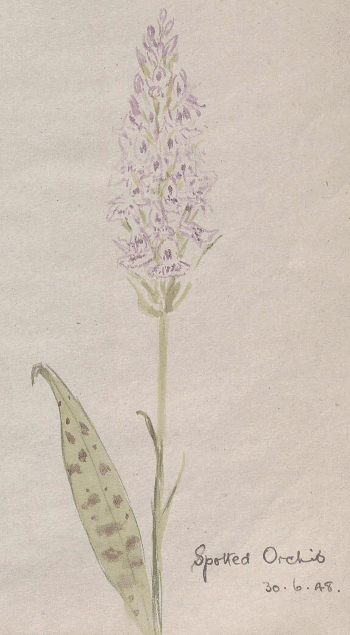
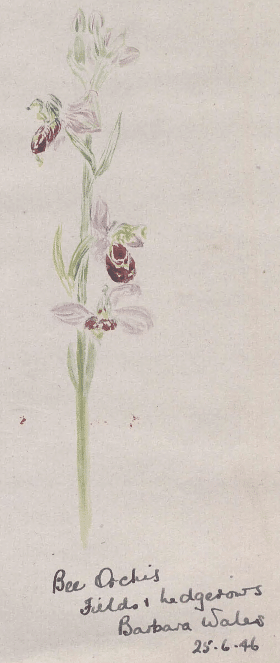
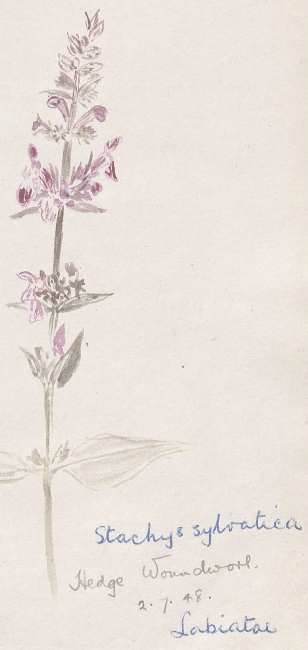
It is not very often that we get asked to help digitise the archives of a natural history society so we were excited when the Orpington Field Club approached us to see if we could help.
After saying yes, we received a visit to our office from two members of the Club who came with a trolley full of paper newsletters and annual reports detailing the work and life of this organisation from the 1960s to 2014. Members of the Club have been very active recorders in Orpington, Bromley and the surrounding areas and so the papers are full of exciting wildlife observations. They even contained accounts of members venturing further afield and returning with wildlife sightings from their holidays.
Natural history clubs and societies have played an enormously important role in fostering, collating and celebrating local wildlife recording in many parts of the UK. Orpington Field Club members have been exploring their area in south east London and Kent for a long time, going out on excursions and regularly noting what they see. Section heads submitted yearly reports for their species group that were then shared with the membership in the annual reports. We have been mining this rich source of information to create wildlife records in a digital format that will be far more accessible to use and share.
The project work included extracting just over 62,000 records from the papers which includes 5,577 different species from 59 taxon groups. The most frequently recorded plant species was the common spotted-orchid (Dactylorhiza fuchsii) with 160 records throughout the newsletters and reports, and chiffchaff (Phylloscopus collybita) topped the bird list.
One of the objects that we have digitised is Miss Baxter’s notebook, one of the most beautiful items we have ever had the pleasure to extract wildlife observations from. The notebook was presented to the Club in 1970 for safekeeping and it has sketches of local plants and observations made by Miss Baxter who was the head teacher of Pratts Bottom Primary School from 1927-1957. When Miss Baxter handed over the notebook she wrote
“I think to any nature lovers it should be a valuable record especially as the district is gradually being built up and the flowers may no longer be found… I found my first Man Orchid where now there is the new by-pass on the slopes of Halstead Fort.“
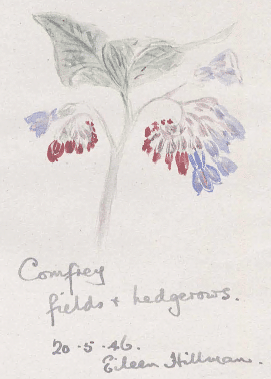
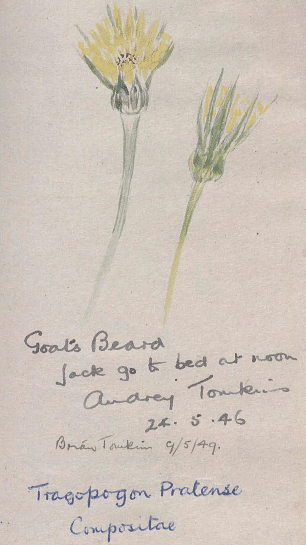
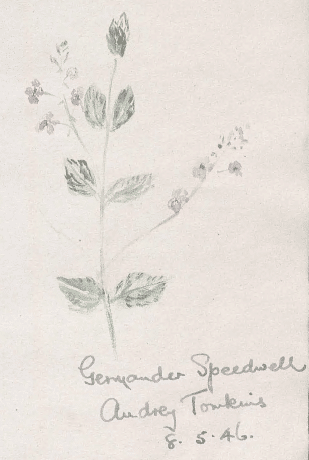
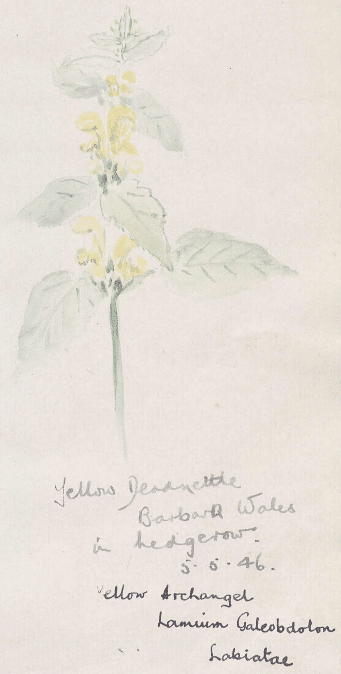
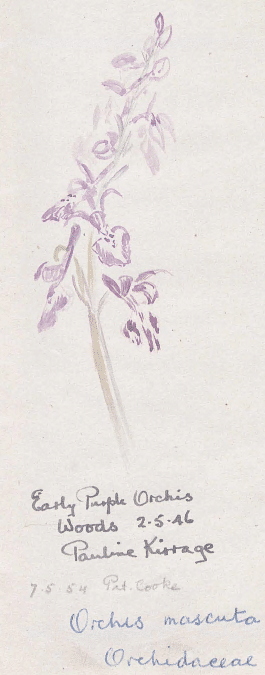
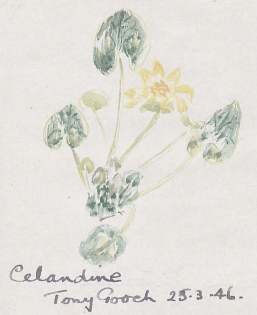
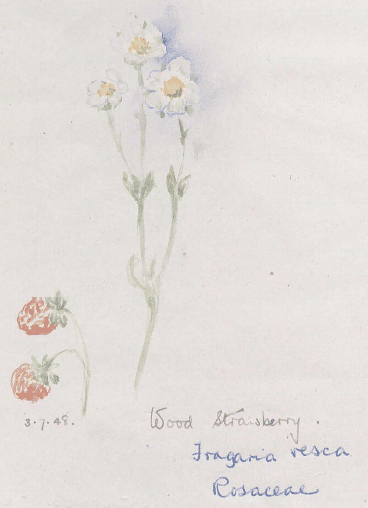

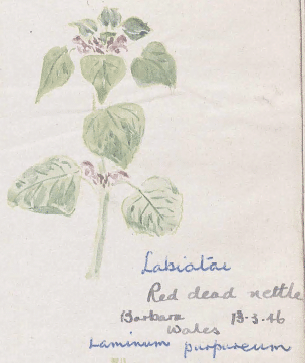
Transcribing paper records is not a small undertaking and we are very grateful to have had the support of many GiGL volunteers over the years who have helped with this epic project. We treat projects like these that help mobilise data that underpin our knowledge of London’s environment as important ways of meeting our commitments to supporting the recording community as a social enterprise. It has been a privilege to work with Orpington Field Club to share the immense value of their archive contributing to the shared knowledge base.
Orpington Field Club currently operates as a Facebook group.

I’m proud to have been part of the project and to be a member of the Orpington Field Club. The knowledge of most of its members is staggering. Each has their speciality, whether it’s birds, butterflies, fungi or flora; and each was more than happy to share this deep well of knowledge with novices such as myself. Well done OFC
Smashing – excellent combination of OFC and GiGL.